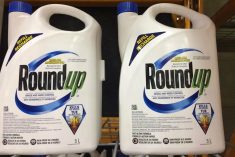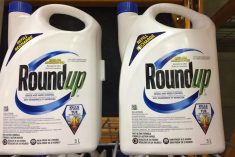A U.S. judge has dismissed a lawsuit accusing agriculture giants Bayer, Corteva, Syngenta and others of conspiring with wholesalers and retail outlets to fix prices for seeds and crop protection chemicals, causing farmers to pay higher prices.
St. Louis-based U.S. District Judge Sarah Pitlyk ruled on Friday that farmers and other plaintiffs failed to present sufficient allegations that the companies had violated U.S. antitrust law.
The farmers said Bayer and others schemed to collectively boycott electronic “crop inputs” platforms, depriving the ability of farms and other purchasers to make effective cost comparisons for key agricultural materials.
Read Also

Canola industry pumped about 45Z clean fuel ruling in U.S.
Canada’s canola sector is pleased with the new 45Z guidance published by U.S. Treasury.
Pitlyk said the plaintiffs’ allegations did not rebut the companies’ claims that their practices served legitimate business purposes. She faulted the plaintiffs for advancing “mere generalizations” in their lawsuit.
Bayer, Corteva, Syngenta and BASF, another defendant, welcomed the court’s ruling in separate statements. Bayer said the crop input market is “competitive, fair and diverse.” Corteva said it will continue to “vigorously” compete in agricultural markets.
All of the defendants had denied any wrongdoing.
Attorneys for the plaintiffs at law firms Lockridge Grindal Nauen and Gustafson Gluek declined to comment.
The case includes lawsuits that were filed across the country in 2021. The crop protection chemicals at issue include fungicides, herbicides and insecticides.
Farmers accused wholesale and retail outlets of pressuring manufacturers such as Bayer not to deal with emerging e-commerce platforms that would have opened the crop input market to greater price transparency.
The defendants countered that there was no evidence supporting the plaintiffs’ conspiracy claims, and that any resistance to the electronic platforms “was entirely consistent with each individual defendant’s independent commercial interests.”















